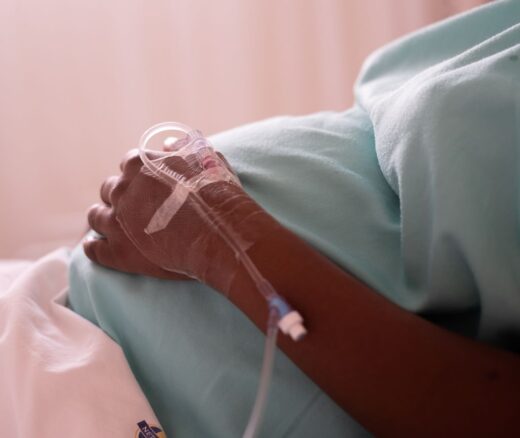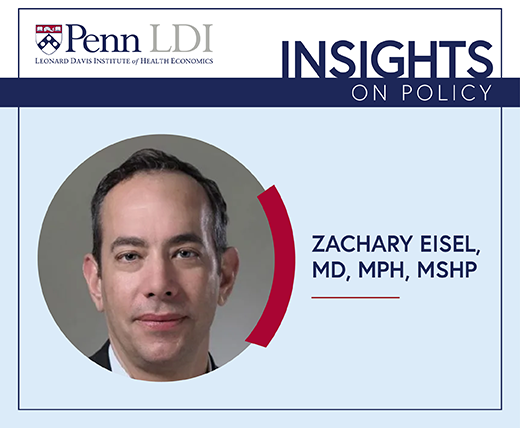
Over 500 U.S. Hospitals Have Stopped Delivering Babies Since 2010
A Crisis in Maternal Care is Unfolding—and it’s Hitting Rural and Urban Communities Alike
Population Health
News | Video
The adequate provision of appropriate school sex education for gay, bisexual, and queer (GBQ) high school adolescents is an issue that has garnered a lot of press coverage and national debate. This is hardly surprising in a country where some school boards routinely marginalize their LGBTQ student communities and purge their libraries of books and other literature that address this population’s health and well-being needs.
“While we don’t have firm numbers about how much of the national lesbian, gay, bisexual, transgender, and queer (LGBTQ) student population is receiving factual information about sexual health, it is safe to assume that a good majority of those individuals are being educated in heteronormative and cisnormative ways on sexual health, and this does not provide an adequate safety net for them,” said LDI Senior Fellow and University of Pennsylvania School of Nursing Assistant Professor Dennis Flores, PhD, ACRN.
“Systematic exposure to inclusive and accurate sexual health information is very important for this group because they have been at the receiving end of long-standing health disparities,” Flores continued. “To effectively address these inequities, there needs to be accurate, safe, and easily accessible sex education information that does not politicize or vilify them.”
“The issue is of great importance because the early provision of inclusive sexual health information attuned to the attractions, behavior, and identities of GBQ adolescents can reduce the formation of risky sexual behavior and this population’s risk of HIV and other sexually transmitted diseases,” said Flores, who earned his PhD from Duke University and a Master’s in Public Health Nursing Leadership at Emory University.
The impacted population is quite large. The latest Centers for Disease Control and Prevention (CDC) Youth Risk Behavior Surveillance System survey reports that 26% of U.S. high school students identify as LGBTQ. There are 16.9 million high school students across the country, so that means roughly 4,225,000 identify as LGBTQ. That is a group larger than the entire population of Los Angeles, the country’s second largest city.
Flores, who is also a Visiting Professor at the Center for Research on AIDS at Yale University’s School of Public Health, has been researching the ways in which schools and parents at home, can more empathetically and effectively provide sexual health education for their young GBQ students and sons.
His recently published paper in the Journal of Adolescent Health entitled “Inclusive and Age-Appropriate Timing of Sexual Health Discussions at Home According to Gay, Bisexual, and Queer Adolescent Males,” is focused on developing age-appropriate topic guides to inform parental discussion at home during the elementary, middle school, and high school years. Flores said the focus on home learning is necessary because so many schools fail to provide either this education or support for parents who attempt to do it themselves.
The two other members of that project’s research team were LDI Senior Fellow and Penn Nursing School Assistant Professor Melanie Kornides, ScD, MSN, and Steven Meanley, PhD, MPH, Core Investigator at the Penn Center for AIDS Research (Penn CFAR).
“This study was different because previous studies of the programming of sex education have not included perspectives of cisgender gay, bisexual and queer males,” said Flores. “This was one of the first studies to be focused and mindful of soliciting the insights of that population to inform programming for future cohorts,” said Flores.
Flores is also an Affiliated Faculty member of the Penn School of Nursing’s Eidos LGBTQ+ Health Initiative–a health-related research initiative that is focused on evaluating and improving existing programs and developing new evidence-based interventions and innovations that improve care for this community.
Late last year, he was awarded a $600,000 grant from the Rita and Alex Hillman Foundation’s Hillman Innovations in Care program to support the expansion of the School of Nursing’s research on the well-being of LGBTQ adolescents and their families.
“We collected a wealth of insights from our participants,” said Flores. “They delineated topics for age-appropriate conversations from the first grade through the sixth grade. They reserved most topics to be discussed in middle school when members of the population are most curious about them and would like to hear information from trusted adults. And then, they reserved some topics for later in high school when GBQ students would be able to process things on a more abstract level.”
“Overall, the participants felt there should be equal space in the school setting for them to be able to talk to their teachers or respected adults about the sexual health things they are concerned and curious about, and that these discussions not be prohibited in the school setting.”
“Prohibiting these kinds of conversations in school stigmatizes this community and sends a message that there’s something wrong about talking openly about sexuality and gender,” said Flores. “Additionally, if we don’t provide this information when they are most curious about it, they will be engaging in behavior or might be looking for resources from non-vetted sources. Thus, we will be fighting with inadequate or even questionable sources of information and that really does not advance public health.”
Flores noted that schools often offer no helpful information for parents who have just discovered or been informed of their young person’s sexual orientation. He said there are national non-profits like PFLAG and Free Mom Hugs that can assist parents on how to deal with the disclosure and understand the most effective ways for them to support the needs of their LGBTQ young person.


A Crisis in Maternal Care is Unfolding—and it’s Hitting Rural and Urban Communities Alike

Stable Payments Improved Margins But Not Liquidity, New LDI Analysis Finds

LDI Senior Fellow Cited for “Significant Contributions” in Research

Outdated Laws Target Black and Queer Lives in Over 30 States, Fueling a Deadly Disease

Selected for Current and Future Research in the Science of Amputee Care

Research Memo: Delivered to House Speaker Mike Johnson and Majority Leader John Thune